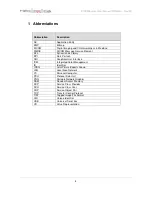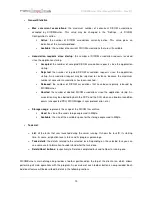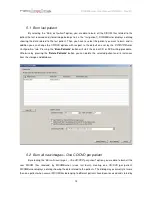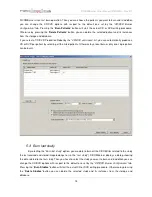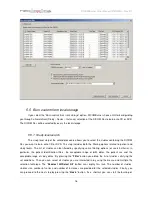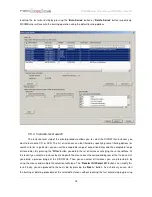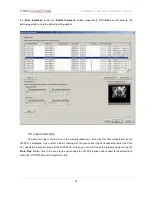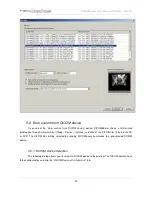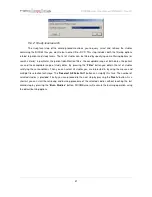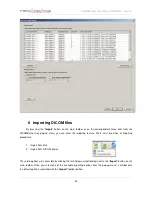
DICOMBurner: User Manual [
DB-UM-3 – Rev B
]
10
•
General Statistics
:
o
Max concurrent associations
: the maximum number of concurrent DICOM associations
accepted by DICOMBurner. This value may be changed in the “Settings…
DICOM
Configuration” section.
Active
: the number of DICOM associations currently active. This value gives an
indication of the current workload.
Available
: the number of concurrent DICOM associations that are still available.
o
Association requests since startup
: the number of DICOM association requests received
since the application startup.
Accepted
: the number of accepted DICOM association requests since the application
startup.
Rejected
: the number of rejected DICOM association requests since the application
startup. An association request may be rejected, for instance, because the maximum
number of concurrent associations has been reached.
Released
: the number of DICOM associations that have been regularly released by
DICOMBurner.
Aborted
: the number of aborted DICOM associations since the application startup. An
association may be aborted by both the SCP and the SCU when an abnormal condition
occurs (unexpected PDU, DICOM Upper Layer protocol error, etc.).
o
Storage usage
: represents the usage of the DICOM files archive.
Used
: the size of the used storage expressed in MByte.
Available
: the size of the available space for the storage expressed in MByte.
•
Task List
:
o
List
: all the tasks that user launched during the server running. It shows the task ID, its starting
time, its name, origination level, status and its progress percentage.
o
Task details
: the details related to the selected task. Depending on the selected task you can
see some useful information to understand what the task done.
o
Delete/Abort buttons
: respectively to Delete a completed task and to Abort a running one.
DICOMBurner’s main dialog also provides a toolbar positioned on the top of the client area, which allows
performing all main operations with the program. An overview of each toolbar button is now provided. Each
individual feature will be described in detail in the following sections.





